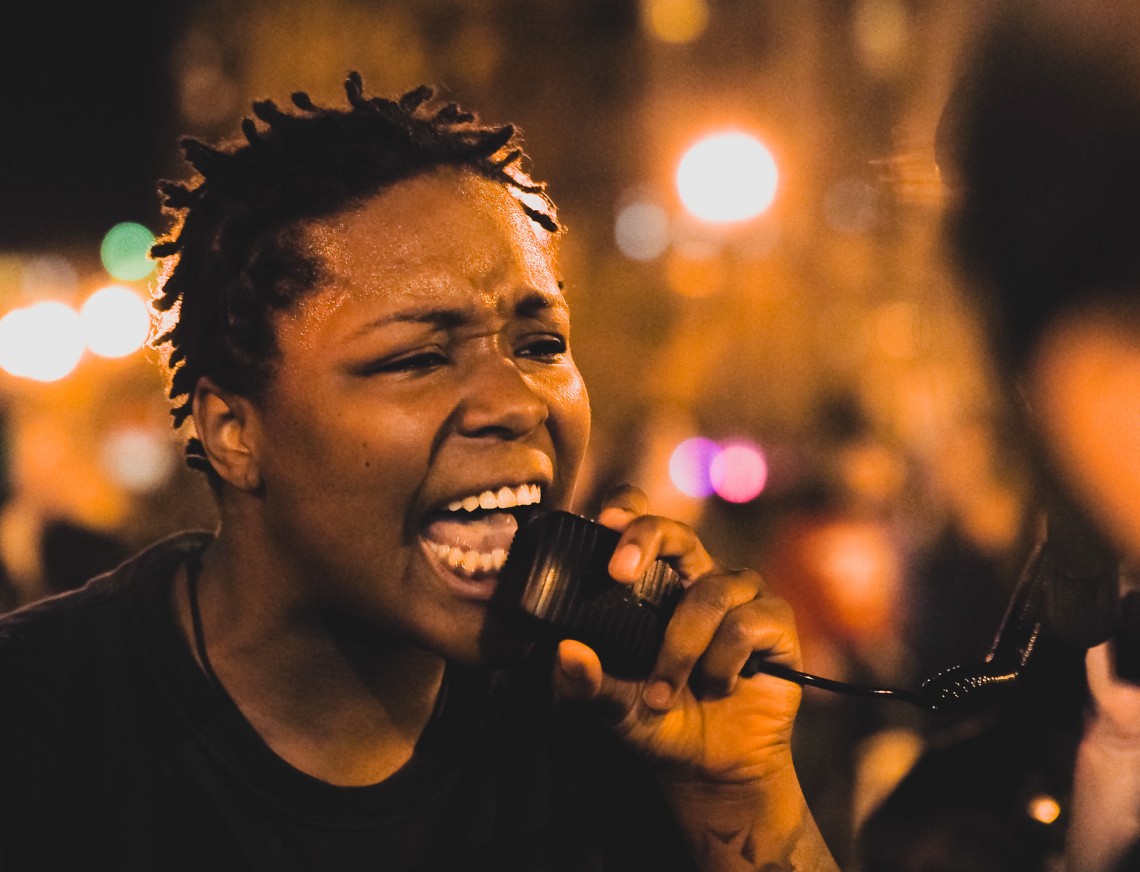Life of the Law is proud to feature contributions to our magazine from inmates at San Quentin State Prison. Today, Rahsaan Thomas reflects on Ferguson from inside.
If you know what’s happening right now in Ferguson, Missouri, you know that prosecutor Robert McMulloch’s recital of how the physical evidence disproves witnesses’ accounts of murder has fallen on some deaf ears.
The standard of evidence to get indicted is very low. Lawyers joke that a grand jury will indict a ham sandwich if it was in the room during a murder. As plenty of commentators have noted in the wake of the Ferguson decision, a grand jury’s job is to see if there is evidence supporting reason to believe the defendant committed a crime, not to decide if he is guilty. It’s a low threshold that even conflicting evidence meets, but not in Ferguson, not in this case.
In the case of this black writer, however, currently serving life in San Quentin, the physical evidence didn’t matter. I shot two men who were armed with semi-automatic weapons when they were attempting to rob a friend. A witness undermined my self-defense claim by testifying that I shot one man after he started running away and the other as he sat in a car, and that neither displayed a firearm. The physical evidence, however, told a different story. Both of their nine millimeters were found near them at the scene, and the gunshot wounds received by both indicated that they were facing me with guns when shot, not running away, or in a car. My case was written off as a drug deal gone bad, and I stand convicted of second degree murder and attempted voluntary manslaughter. I am sentenced to serve 55 years to life in a California prison.
So why didn’t the physical evidence matter in my case?
People are rioting in Ferguson over feeling black, over feeing like black life isn’t valued, like we can be killed for nothing and nothing be done about it — like we can be thrown in prison for life regardless of the same lack of evidence that meant Darren Wilson didn’t even have to face a trial to determine his guilt.
That’s the feeling that has lead to civil disorderly conduct ranging from gunfire and setting police cars on fire to destruction of property, all instead of peaceful protest. And I am going to be honest — while I don’t support such conduct, I can understand the feeling that has inspired it.
There is much talk of lawful behavior versus unlawful behavior, of the importance of respect for the law, but if those charged with enforcing the law aren’t held accountable when its statutes are aimed at them, how can they be surprised when there are those who prefer to resort, instead, to anarchy? A culture of double standards doesn’t inspire obedience from the folks who come out on the losing end. Prosecutors and police need to be the example they want everyone to follow.
To stop the deadly inequality, we must hold those with power — police, prosecutors and politicians — just as accountable as everyone else. America is made up of a variety of ethnicities, cultures and classes, and this is everyone’s problem.
German Protestant pastor Martin Niemöller, who spent years in a concentration camp for his vocal condemnation of Hitler, famously said in the wake of World War II:
“First they came for the Communists, and I didn’t speak up because I wasn’t a Communist.
“Then they came for the Jews, and I didn’t speak up because I wasn’t a Jew.
“Then they came for the trade unionists, and I didn’t speak up because I wasn’t a trade unionist.
“Then they came for the Catholics and I didn’t speak up because I was a Protestant.
“Then they came for me, and by that time no one was left to speak up.”
Rahsaan Thomas is serving a 55-to-life sentence in San Quentin where he is Sports Editor and Staff Writer for the San Quentin News. He is also co-author of Uncaged Stories.
Image: A Ferguson protestor / Cosmic Smudge via photopin









